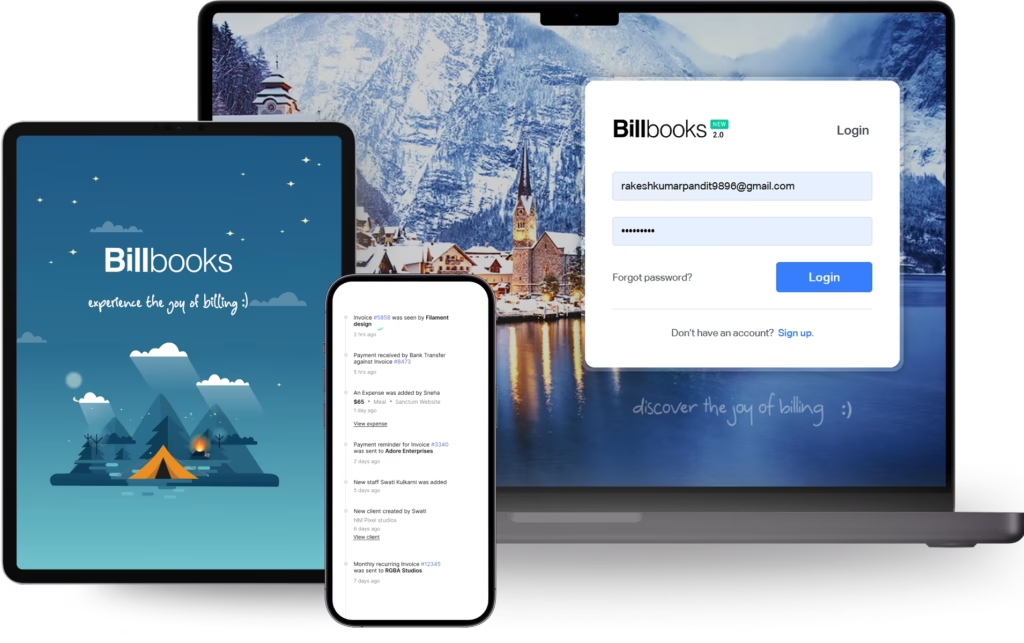Key Takeaways
- Manual billing works early, but it breaks down during startup growth.
- A scalable billing system prevents errors and saves valuable time.
- Automation helps startups invoice faster and get paid sooner each month.
- Recurring billing supports subscriptions and retainers with predictable schedules payments.
- Multi-currency support reduces friction with international clients across borders today.
- Integrated payment gateways improve cash flow and convenience for clients.
- Real-time reports give founders clear financial visibility each month today.
- Role-based access keeps billing secure during team growth phases early.
- Scalable invoicing software grows with your business needs over time.
- Choosing the right billing tool early avoids costly transitions later.
Starting a business is exhilarating—but as your startup takes off, so do the financial demands. Spreadsheets or free invoice templates are the starting point for most founders. It works to begin with, but the moment you incorporate more clients, subscriptions, or foreign payments, billing is suddenly a nightmare. Mistakes build up, payments get stuck, and precious hours are wasted tracking down invoices.
This is where picking the right scalable billing system up front makes all the difference. A solution that is properly designed handles your present workload and scales with your business. If you’re a freelancer, small business, or up-and-coming startup, the best billing software for startups assists you in automating processes, minimizing errors, and receiving payment more quickly.
In this guide, we’ll lay out why startups require scalable billing, how to tell what features are important, how to compare your options, and why the best invoicing software—such as Billbooks —can make invoicing easy so you can concentrate on expansion.
Why Startups Require a Scalable Billing System
In the start, manual billing may be easy. A handful of clients, a few invoices, perhaps a communal spreadsheet to record payments. But expansion brings complication:
- More customers = more invoices to monitor and follow up on.
- Subscriptions or retainers necessitate repeat billing.
- International clients involve several currencies and tax regulations.
- Scaling to a team adds collaboration demands and role management.
If your billing tool can’t scale, you’re at risk for slow cash flow, compliance challenges, and administrative chokepoints.
A scalable invoicing tool eliminates these issues by providing:
- Automation – Minimize human effort and send invoices quicker.
- Compliance – Remain compliant with tax regulations and multi-currency provisions.
- Faster payments – Online gateway integrations allow clients to pay immediately.
- Reduced errors – Intelligent software reduces duplication and overlooked payments.
For startups and freelancers as well, the greatest billing software makes billing never the obstacle to expansion.
Billbooks Invoice Maker.
Make a professional
invoice in 30 seconds
Used by thousands of freelancers, self employed and SMBs.

Key Features to Look for in a Scalable Billing Software
When selecting billing software for startups, ensure that it allows for long-term growth while remaining user-friendly in everyday use. Below are the basics:
Cloud-Based & Accessible Anywhere
Startups tend to work remotely. A cloud-based billing system allows you to create and follow up on invoices from anywhere. With Billbooks, for instance, you can send a professional invoice in a client meeting or review payment status at home.
Multi-Currency & Tax Compliance Ready
If you intend to scale internationally, ensure that your system accommodates multiple currencies and enforces tax rules automatically. This avoids expensive compliance errors.
Automation & Recurring Billing
Automation is time-saving and ensures consistency. Recurring billing, automated reminders, and late fee rules ensure that your cash flow is consistent without continuous manual intervention.
Integration with Payment Gateways & Accounting Tools
Your accounting software must plug in nicely with common payment gateways (Stripe, PayPal, bank payments) and accounting tools. This allows clients to pay seamlessly and your ledgers to remain balanced.
Analytics & Reporting for Decision-Making
An expanding business requires information. Find dashboards and reports that monitor revenue patterns, outstanding payments, and client payment habits. These metrics enable you to make wiser monetary choices.
Customization & Role-Based Access
Professional, branded bills establish trust with customers. Role-based access also enables teams to work together securely—salespeople can issue bills while accounting manages reporting.
That makes Billbooks a great invoicing software for freelancers too, as it strikes a fine balance between ease of use and robust features that grow with business requirements.
How to Assess the Right Billing Solution for Your Startup
Selecting the top invoicing software involves more than looking at cost. Keep these factors in mind:
Match Features with Your Business Model
Do you charge by project, by the hour, or by subscription? A freelancer may want recurring billing and rapid payment, whereas an e-commerce startup may require shopping cart integrations.
Think about Scalability & Cost as You Grow
An application should cost you today but scale economically. Tiered plans such as Billbooks allow you to upgrade only when necessary.
Ease of Use & Support
Your staff shouldn’t be wrestling with complex software. Choose a tool with a user-friendly interface and timely support. Free trials are an excellent method for testing usability.
Security & Data Privacy Compliance
Billing entails sensitive financial information. Ensure the provider complies with data privacy law and provides secure cloud storage with encryption.
Comparing Basic Billing vs. Scalable Billing System
| Features | Basic Billing Tools | Scalable Billing System |
| Invoice Creation | Manual, templates only | Automated, customizable |
| Payment Options | Limited, manual transfers | Multiple gateways (cards, PayPal, bank) |
| Compliance | Local only, manual tax handling | Multi-currency & tax compliance ready |
| Reporting | Minimal, manual tracking | Advanced analytics & dashboards |
| Collaboration | Single user | Multi-user, role-based access |
| Growth Support | Not designed to scale | Designed for startups & expansion |
How Billbooks Can Assist Startups Scale Effortlessly
When searching for options, think about how Billbooks is constructed for freelancers, small businesses, and startups:
- Intelligent invoicing – Produce invoices online in minutes using professional templates.
- Recurring billing – Ideal for subscriptions, retainers, or continuous projects.
- Expense tracking – Keep everything out in the open and linked to client projects.
- Detailed reports – Get a better understanding of revenue, amounts owed, and client history.
- Payment reminders – Automate follow-ups to get paid sooner.
- Custom branding – Establish trust with branded invoices.
- Multi-user access – Delegate roles so your team can work securely.
It’s among the top invoicing software for small business options for seeking user-friendly, scalable functionality but not enterprise-level complexity. For freelancers, Billbooks offers rapid, professional billing that helps them appear larger than they are.
Steps to Move to a Scalable Billing System
Moving from spreadsheets or simple tools to a scalable billing system does not have to be overwhelming. Follow these steps:
- Audit your existing process – Look for pain points such as delayed payments, manual mistakes, or missing invoices.
- Identify scaling challenges – Consider future requirements: additional clients, global billing, or team access.
- Shortlist tools – Review platforms such as Billbooks and trial using free trials.
- Test integrations & workflow – Ensure the system integrates well with your payment gateways and accounting software.
- Onboard your team – Train staff on new processes, assign roles, and gradually phase out manual methods.
Conclusion
Billing might not be the coolest aspect of startup life, but it’s one of the most critical. As your business grows and you offer more diverse services to your clients, basic or manual billing software won’t cut it. A scalable billing solution allows you to handle complexity, automate tedious tasks, and keep cash flow healthy—without inundating your staff.
The key is choosing the right invoicing software that grows with you. For freelancers, small businesses, and startups, tools like Billbooks strike the right balance—simple to use, yet scalable for future growth.
Don’t wait until billing becomes a bottleneck. Invest in the best invoicing software now so your business can stay ahead.
Explore Billbooks today and experience smarter, scalable billing for your startup.

